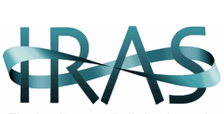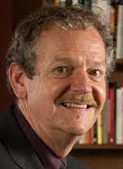Greetings, WesleyNexus Colleagues:
When the New Year arrives, it is common for many people to make “resolutions” which, if they truly keep their resolve firm, would impact their lives in some way. In most cases, people resolve to lose weight, or to exercise more, or to make some adjustment in their lifestyle to improve their health. Millions of people this week witnessed the return of beloved weatherman Al Roker to the NBC morning show, Roker just having recovered from a life-threatening illness that required heart surgery, treatment for dangerous blood clots, and a kidney malfunction. Significantly, prior to a medical exam three months ago, Roker had no warning that his health was in jeopardy. It was the same with Buffalo Bills safety Damar Hamlin, who required resuscitation on the field during last Monday night’s game in Cincinnati, and now almost miraculously appears to be on the road to a complete recovery. When one pauses to reflect on these events, it gives one pause because, as the saying goes, “for the grace of God, that could happen to me.” So what do we do? Perhaps we should start by listening more closely to our Episcopal leader, Bishop LaTrelle Easterling, who each year sends a strong message to all the clergy and delegates to Annual Conference to pay more attention to our health. Our Conference has a generous health and wellness package, but the numbers of persons who take seriously preventive measures are not great. Perhaps this is the time to do so. We have resources that we can call on for information. The Duke Clinical Research Institute, part of the Duke University School of Medicine, is the world’s largest academic clinical research organization. Professionals there conduct innovative research to deliver their mission to share knowledge that improves health around the world. DCRI projects are led by physician scientists whose grounding in patient care helps to inform their research, supported by staff who have deep expertise in operationalizing global studies. As clergy, one of the major deficiencies in our own health maintenance plans is our mental health. But if we are serious about our participation in the Science & Religion dialogue, we should pay more attention to ongoing research and advice about factors such as stress, information overload, sleep deprivation and absent-mindedness. Driven by the psychiatry and neurology faculty at Duke, the DCRI’s Neurosciences Medicine program develops, conducts, and supports innovative Phase I clinical trials addressing neurological and psychiatric conditions for pediatric, adolescent, adult, and geriatric patient populations. Their experienced and consistent clinical teams expertly manage all aspects of neuroscience medicine clinical trials, including:
• Early-phase PK/PD and POC trials, conducted in the onsite phase I unit
• Game and device/sham-controlled trial design and behavior
• Neurocritical care trials
• Electroencephalography
• Polysomnography
• Nerve conduction studies and electromyography
• Immune monitoring: mechanistic and predictive biomarkers
• Full-service CRO activities (protocol design/development, data management, biostatistics, pharmacokinetics, site management/monitoring)
A recent study at DCRI sought to simultaneously test a method for identifying individuals at high risk for Alzheimer’s disease while testing the efficacy of a potential treatment aimed at targets affecting cellular bioenergetics. A DCRI faculty member was involved in this innovative study that sought to prevent or delay the onset of symptoms in people at risk for developing Alzheimer’s. This TOMMORROW study, named after TOMM40 ‘523, focused on a gene thought to be associated with cognitive decline. The DCRI’s Kathleen Welsh-Bohmer, PhD, who was a member of the study team, said the trial’s design and data contributed to important learnings for the design of future studies in the field. A paper detailing the design of the study was recently published in Alzheimer’s & Dementia: Translational Research & Clinical Interventions. The TOMMORROW study produced a rich dataset of nearly 3,500 healthy individuals older than 65 who were followed for up to four years with detailed clinical and neuropsychological evaluation every six months. This dataset will allow investigators to model the early clinical transitions of disease in a population enriched for risk of developing cognitive decline symptoms over the next five years. This is but one significant and innovative approach taking place in this field…. Others are being conducted right here in our back yard – at NIH in Bethesda and at Johns Hopkins in Baltimore. All of us should be paying attention. And once we begin to do that, once we begin to take seriously the emerging neuroscience breakthroughs, maybe we will begin to pay more attention to our own mental health. That would not only be a good thing – it would also demonstrate that we take seriously the importance of science for practical religion.
Contents:
IRAS Webinar: Question Reality! The Limits of Science and the Quest for Knowledge with Dr. Marcelo Gleiser
Ecotheology, or Why Climate Crisis and Eco-Anxiety Require a Radically Different Kind of Theology with Philip Clayton
Christian Process Theology: Introductions for the spiritually-interested, intellectually-engaged General Reader by Marjorie Suchocki and Jay McDaniel
The Problem of Natural Evil and Animal Suffering by Austin Pounds
WHY MANY RESEARCHERS NOW SEE THE BRAIN AS A QUANTUM SYSTEM by DENYSE O’LEARY
An A.I. Pioneer on What We Should Really Fear By David Marchese
THE QUIET PROFUNDITY OF EVERYDAY AWE by Dacher Keltner
Thanks continue to go out to our generous contributors. We encourage you to share comments, articles and insights that will help us all weather these difficult times.
Blessings,
Rick Barr and the rest of the WesleyNexus team
****************************************************************************************************
January Webinar
Question Reality! The Limits of Science and the Quest for Knowledge with Dr. Marcelo Gleiser
On January 18, 2023 4:00 Eastern, 5:00 Central
How much can we know of the world? Are there fundamental limits to knowledge? In this interdisciplinary lecture, I will describe why science necessarily provides a limited description of Nature and discuss the impact this has on our quest for an ever-deeper understanding of reality and for theories of “everything.” Starting with Plato’s Cave, I will trace our ever-changing worldview to arrive at current cosmology, quantum physics, and computer science examples that illustrate a few unknowable questions and their implications.
About the January 18th presenter:
Marcelo Gleiser is the Appleton Professor of Natural Philosophy and a professor of physics and astronomy at Dartmouth College. He obtained his Ph.D. from King’s College London and received the 1994 Presidential Faculty Fellows Award from the White House. He is a Fellow of the American Physical Society. He is the 2019 Templeton Prize Laureate, an honor he shares with Mother Teresa, Archbishop Desmond Tutu, the Dalai Lama, and scientists Freeman Dyson and Martin Rees. His books have been published in 15 languages, including The Island of Knowledge: The Limits of Science and The Search for Meaning, A Tear at the Edge of Creation, and The Simple Beauty of the Unexpected. A world-renowned theoretical physicist interested in cosmology and astrobiology, he has published hundreds of peer-reviewed articles and more than a thousand essays and op-eds and frequently participates in TV documentaries and radio shows in the U.S. and abroad. He co-founded the NPR blog on science and culture, 13.7. He currently directs the Institute for Cross-Disciplinary Engagement at Dartmouth College and writes weekly for Orbiter Magazine.
Respondent: Rabbi Robert (Rob) Friedman is an experienced spiritual counselor, ritual creator, and prayer leader. A Reform Rabbi whose deepest passion and call is to help each and every person he engages with to continue the process of improving their day-to-day lives, he is a strong believer in the power of t’shuvah, the Jewish concept of redemption, and is dedicated to modeling in word and action how transformative this process can be. As a former military chaplain, Rabbi Friedman has extensive experience working across faith settings, bringing an authentic pluralistic mindset as needed. A scholar of Hebrew Bible, Judaism, Jewish History, and the Jewish ethical living curriculum of Mussar, he brings an academic approach to the history of Judaism and how we can apply it to our daily modern lives. He currently resides in the greater Chicago area with his wife, Robin, and dog, Kimber.
https://us02web.zoom.us/webinar/register/WN_to2k3DELRgWkBnGKGPsNrA
****************************************************************************************************
The Institute on Religion in an Age of Science (IRAS)

IRAS is an international society of learners and thinkers, natural and social scientists, philosophers, theologians and people from many other backgrounds and professions. IRAS cultivates a community of informed and respectful inquiry and dialogue at the intersections of science with religion, spirituality and philosophy in service of global, societal and personal well-being.
IRAS Webinar Series
For 65 years, The Institute on Religion in an Age of Science (IRAS) has held summer Conferences on Star Island, off the coast of Portsmouth, New Hampshire. Due to the pandemic, we had to postpone our 2020 Star Island conference until the summer of 2021. In order to continue to engage with IRAS themes and the IRAS community, with Star Island’s generous support, we launched a live webinar series: Science, Religion, & Society.
https://www.iras.org/webinar-series.html
****************************************************************************************************
Ecotheology, or Why Climate Crisis and Eco-Anxiety Require a Radically Different Kind of Theology with Philip Clayton

If anything has been scientifically established, it’s anthropogenic climate change. As we learned this last summer, climate disruption means floods, droughts, and fires ― levels of social and economic disruption we could hardly have imagined a few decades ago.
The result is eco-anxiety and a pervasive sense of hopelessness, especially in younger people. What resources are available in the Christian tradition for addressing these challenges? Perhaps there is no other contemporary topic where theology and the natural (and social) sciences come together in more profound and important ways ― and certainly none on which the fate of the world’s ecosystems more urgently depend. (Chestnut Hill College, November, 2022)
https://www.youtube.com/watch?v=y4AxTOZX27g
****************************************************************************************************
Christian Process Theology: Introductions for the spiritually-interested,
intellectually-engaged General Reader by Marjorie Suchocki and Jay McDaniel
Process theology is an evolving multi-religious tradition. Its advocates include Jews, Muslims, Buddhists, Hindus, Bahais, Pagans, and people who are spiritually interested but not religiously affiliated. Christian process theology is one of its most important and influential expressions. This page offers two introductions to Christian process theology for the spiritually-interested, intellectually engaged general reader; along with, at the bottom of the page, a list of additional books and resources, of which there are many. The introductions are by Marjorie Suchocki, professor emerita of the Claremont School of Theology, and Jay McDaniel, chair of the board of the Cobb Institute for Community and Practice. Suchocki’s is especially valuable for church-involved readers and McDaniel’s for the more general reader. Both essays stand on their own, but, together, they offer a good introduction to Christian process theology.
Christian Process Theology: Introductions for the General Reader – Open Horizons
****************************************************************************************************
The Problem of Natural Evil and Animal Suffering by Austin Pounds
One of the greatest challenges to theism is the problem of evil, pain, and suffering in the world. How could an all-powerful, benevolent God allow this world to be full of such evil? Theologians have pondered this question since the conception of Christianity. Oftentimes the conversation on this topic has been relegated to the realm of human suffering. However, one issue that often gets ignored in theodicy is the problem of natural evil and animal suffering. Modern science exacerbates the problem since it shows that evolution is the process by which biological complexity has been brought forward through billions of years. Charles Darwin, the pioneer of modern evolutionary theory, elegantly captures the problem of evolution in his classical work The Origins of Species by stating, “Thus, from the war of nature, from famine and death, the most exalted object which we are capable of conceiving, namely, the production of the higher animals, directly follows.”[1] This is upsetting for many, since they cannot reconcile a good and loving God with the process of evolution. Bethany Sollereder shares this intuition by asking, “How is God’s love expressed in the intense suffering of a young fawn, brought down by a predator or, worse still, accidentally burnt alive in a forest fire… Is the project of creation worth the risk of even one innocent creature who suffers and dies in agony?”[2] Different theological and philosophical schools of thought offer different answers to the problem of natural evil and animal suffering in order to show the compatibility between Christian theism and the reality of such evil. However, this article will focus particularly on open and relational theology and how this paradigm of theology can answer the problem of natural evil and animal suffering.
****************************************************************************************************
WHY MANY RESEARCHERS NOW SEE THE BRAIN AS A QUANTUM SYSTEM by DENYSE O’LEARY
The hypothesis is that the brain relies on quantum physics, not classical physics, to power thinking processes.
Astrophysicist and science writer Elizabeth Fernandez asks us to consider whether quantum processes might help us understand better how the brain works and shed light on consciousness.
“Some scientists suspect that quantum processes, including entanglement, might help us explain the brain’s enormous power, and its ability to generate consciousness. Recently, scientists at Trinity College Dublin, using a technique to test for quantum gravity, suggested that entanglement may be at work within our brains. If their results are confirmed, they could be a big step toward understanding how our brain, including consciousness, works”.
****************************************************************************************************
An A.I. Pioneer on What We Should Really Fear
By David Marchese
Artificial intelligence stirs our highest ambitions and deepest fears like few other technologies. It’s as if every gleaming and Promethean promise of machines able to perform tasks at speeds and with skills of which we can only dream carries with it a countervailing nightmare of human displacement and obsolescence. But despite recent A.I. breakthroughs in previously human-dominated realms of language and visual art — the prose compositions of the GPT-3 language model and visual creations of the DALL-E 2 system have drawn intense interest — our gravest concerns should probably be tempered. At least that’s according to the computer scientist Yejin Choi, a 2022 recipient of the prestigious MacArthur “genius” grant who has been doing groundbreaking research on developing common sense and ethical reasoning in A.I. “There is a bit of hype around A.I. potential, as well as A.I. fear,” admits Choi, who is 45. Which isn’t to say the story of humans and A.I. will be without its surprises. “It has the feeling of adventure,” Choi says about her work. “You’re exploring this unknown territory. You see something unexpected, and then you feel like, I want to find out what else is out there!” A.I. Pioneer on What We Should Really Fear By David Marchese
An A.I. Pioneer on What We Should Really Fear – The New York Times (nytimes.com)
****************************************************************************************************
THE QUIET PROFUNDITY OF EVERYDAY AWE by Dacher Keltner

What gives you a sense of awe? That word, awe—the feeling of being in the presence of something vast that transcends your understanding of the world—is often associated with the extraordinary. You might imagine standing next to a 350-foot-tall tree or on a wide-open plain with a storm approaching, or hearing an electric guitar fill the space of an arena, or holding the tiny finger of a newborn baby. Awe blows us away: It reminds us that there are forces bigger than ourselves, and it reveals that our current knowledge is not up to the task of making sense of what we have encountered.
https://www.theatlantic.com/family/archive/2023/01/feeling-in-awe-take-walk-visual-art/672617/
